Diagnosing and Fixing | Freezer Motor Problems
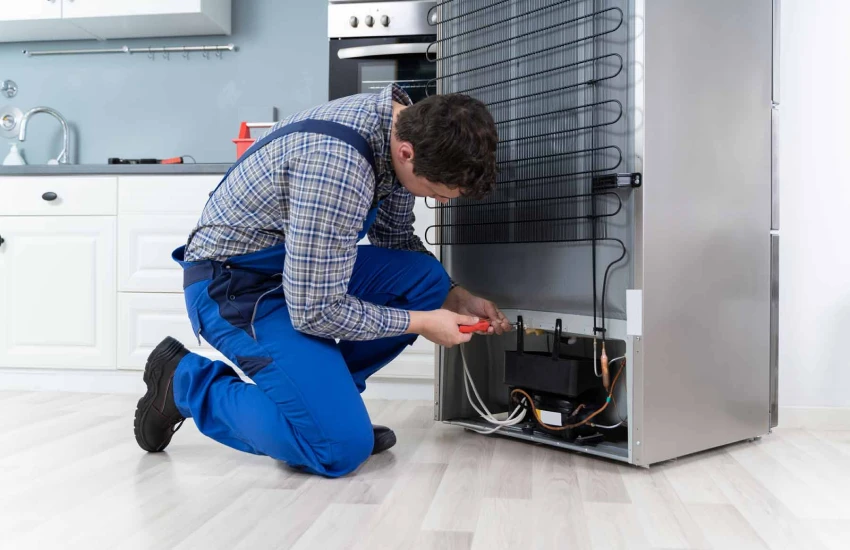
A malfunctioning freezer motor can cause cooling problems and lead to spoiled food. This guide covers the common signs of motor issues, how to diagnose them, and steps to fix the problem effectively, ensuring your freezer stays in top condition.
Diagnosing and Fixing Freezer Motor Problems
The freezer motor is a crucial component that drives the cooling process by circulating air. When it fails, you may notice inadequate cooling, unusual noises, or even a complete shutdown. Here’s a step-by-step guide to understanding, diagnosing, and fixing motor-related issues in your freezer.
Your fridge is a kitchen superstar as it keeps all your food fresh and drinks cold.
But does the fridge feel warm when you open it?
Is there water all over the floor?
Fridge issues are the worst!
Signs of Freezer Motor Problems
Recognizing the symptoms early can help prevent further damage. Look out for these common signs:
- Loud or unusual noises: Humming, rattling, or grinding sounds can indicate motor trouble.
- Inadequate cooling: If your freezer isn’t cold enough, the motor may not be functioning properly.
- Overheating: Excessive heat coming from the motor area suggests strain or failure.
- Freezer won’t start: A motor failure could prevent the freezer from functioning altogether.
Tools and Materials You’ll Need
- Screwdrivers (flathead and Phillips)
- Multimeter for electrical testing
- A soft brush or vacuum for cleaning
- Replacement motor (if needed)
Steps to Diagnose and Fix Freezer Motor Issues
Ensure the Power Supply is Stable
- Check the connection: Ensure the freezer is plugged in and receiving power.
- Inspect the breaker: Verify that the circuit breaker hasn’t tripped.
Listen for Noises
- Identify the source: Open the freezer and pinpoint where the noise is coming from.
- Fan or compressor noise: Determine if the motor or evaporator fan is causing the sound.
Test the Motor with a Multimeter
- Unplug the freezer: Safety first—always disconnect the power supply.
- Access the motor: Remove the back panel or motor compartment cover.
- Continuity test: Use a multimeter to check if the motor’s electrical circuits are intact.
- Replace if needed: If the motor fails the continuity test, it likely needs replacement.
Clean the Motor and Surroundings
- Remove dust and debris: Use a soft brush or vacuum to clean the motor and vents.
- Improve airflow: Ensure the area around the motor is clear to prevent overheating.
Inspect the Evaporator Fan Motor
- Check for obstructions: Remove any items blocking the fan blades.
- Test the fan: Manually spin the blades to ensure they move freely. Replace the fan motor if it’s jammed or not spinning.
Replace the Motor (If Necessary)
- Purchase a compatible motor: Refer to your freezer manual to find the correct model.
- Install the new motor: Follow the manufacturer’s instructions for installation.
- Reconnect and test: Reassemble the freezer and plug it in to verify functionality.
Preventative Tips for Freezer Motor Maintenance
- Clean regularly: Dust and debris can strain the motor. Clean vents and motor compartments every few months.
- Monitor noise levels: Unusual sounds may indicate early signs of trouble. Address them promptly.
- Check air circulation: Avoid overpacking the freezer to ensure proper airflow.
- Schedule maintenance: Have your freezer inspected periodically to catch issues early.
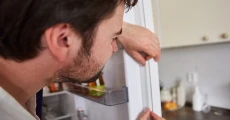
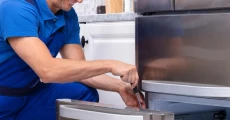
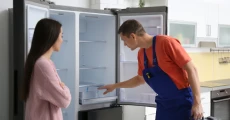
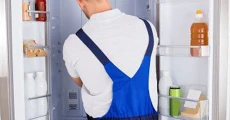
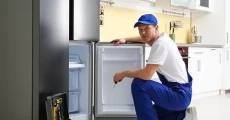
Leave It to the Pros
If diagnosing or repairing the motor seems overwhelming, or if the issue persists after troubleshooting, it’s best to seek expert help. Some motor problems require advanced tools and expertise to fix safely.
At CLT Appliance Repair, we understand how crucial a fully functioning freezer is for your home. Our technicians are skilled in diagnosing and repairing freezer motor issues, ensuring your appliance gets back to optimal performance quickly. With prompt service and transparent pricing, we’re your trusted partner for all appliance repairs.
Call us today for a hassle-free experience with freezer repair charlotte nc!
FAQs
Common signs include unusual noises, inadequate cooling, and overheating near the motor area.
If you have basic tools and experience with electrical appliances, you can attempt it. However, for safety and accuracy, it’s recommended to hire a professional.
With proper maintenance, a freezer motor can last 8–15 years.
The issue could be related to other components like the thermostat, refrigerant levels, or compressor. A professional inspection is recommended.
The cost varies by model but typically ranges from $150 to $300, including parts and labor.

